Kolon hidroterapiako gailuen fabrikatzailea
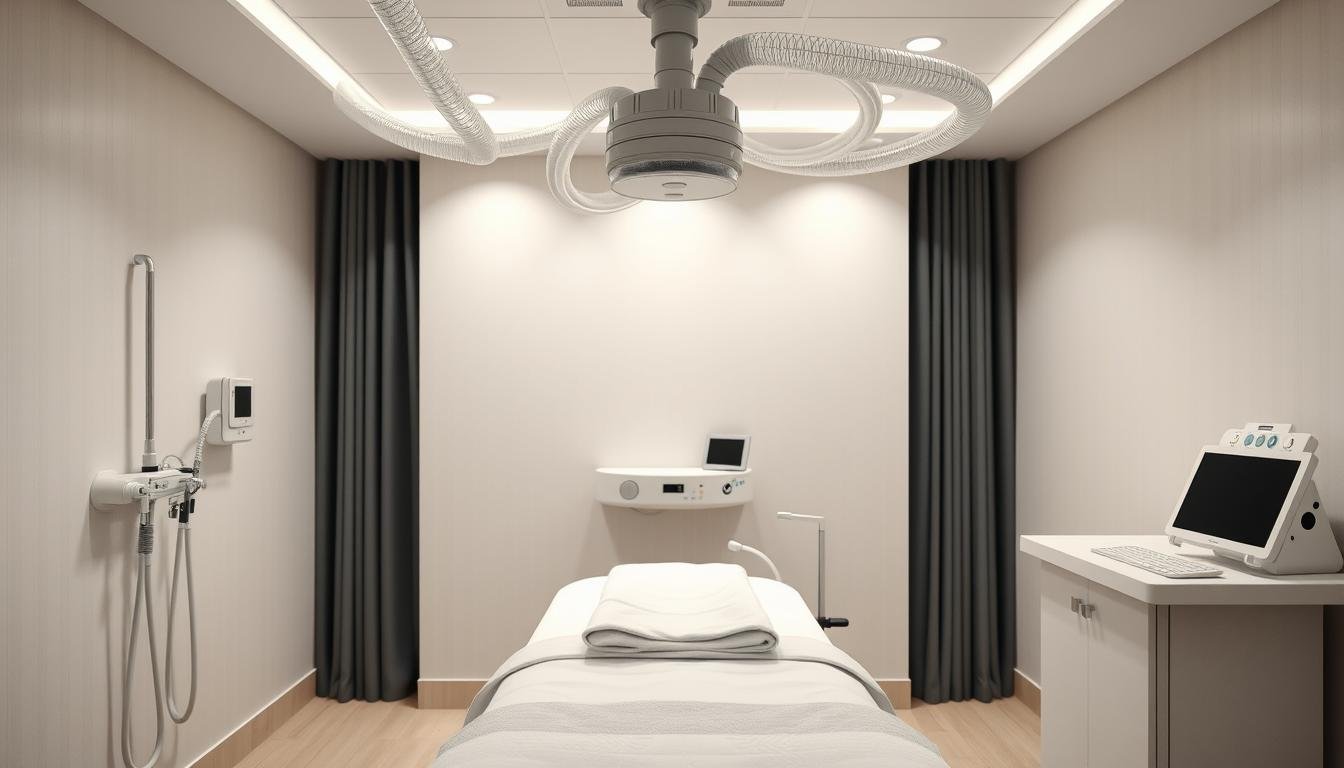
Typical colon hydrotherapy equipment used in professional settings
What is Colon Hydrotherapy?
Is Colon Hydrotherapy Safe?Koloneko hidroterapia is a procedure that involves flushing the colon with large amounts of water to remove waste material. During the treatment, a practitioner inserts a tube into the rectum, through which filtered water flows into the large intestine. The water and waste material are then expelled through a different tube.
A typical session lasts about 45 minutes, during which approximately 16 gallons of water may pass through the bowel. Some practitioners add substances like herbs, coffee, or enzymes to the water, claiming additional health benefits, though there’s little scientific evidence supporting these claims.
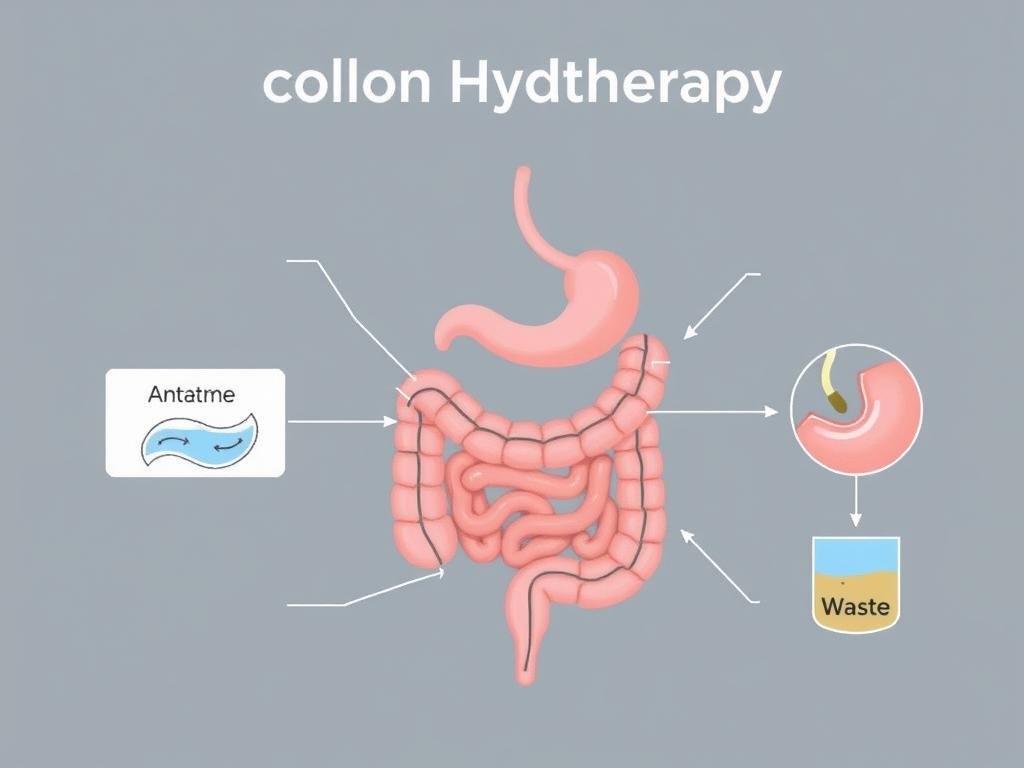
Diagram illustrating the colon hydrotherapy process
Unlike an enema, which only reaches the rectum and lower part of the colon, hydrotherapy aims to cleanse the entire large intestine. Practitioners often claim this process removes “toxins” that have accumulated in the colon, though the medical community largely disputes this premise.
Reported Risks of Colon Hydrotherapy
Is Colon Hydrotherapy Safe?Medical professionals have identified several potential risks associated with colon hydrotherapy. Understanding these risks is crucial before considering this procedure.
Dehydration and Electrolyte Imbalance
The colon plays a vital role in water absorption and maintaining electrolyte balance. Colon hydrotherapy can disrupt this function, potentially leading to dehydration and electrolyte imbalances. These imbalances can be particularly dangerous for people with kidney disease or heart conditions.
Infekzio arriskua
If equipment is not properly sterilized, there’s a risk of introducing harmful bacteria into the colon. Additionally, the procedure can disrupt the natural balance of beneficial bacteria in your gut microbiome, potentially leading to infections.
Hesteetako zulaketa
One of the most serious risks is bowel perforation—a tear in the wall of the colon. This is a medical emergency that can lead to serious infection, sepsis, and even be life-threatening. People with existing bowel conditions are at higher risk for this complication.
Worsening of Existing Conditions
Is Colon Hydrotherapy Safe?For those with certain medical conditions, colon hydrotherapy can exacerbate symptoms or cause complications. These conditions include inflammatory bowel diseases like Crohn’s disease or ulcerative colitis, diverticulitis, hemorrhoids, and recent colon surgery.
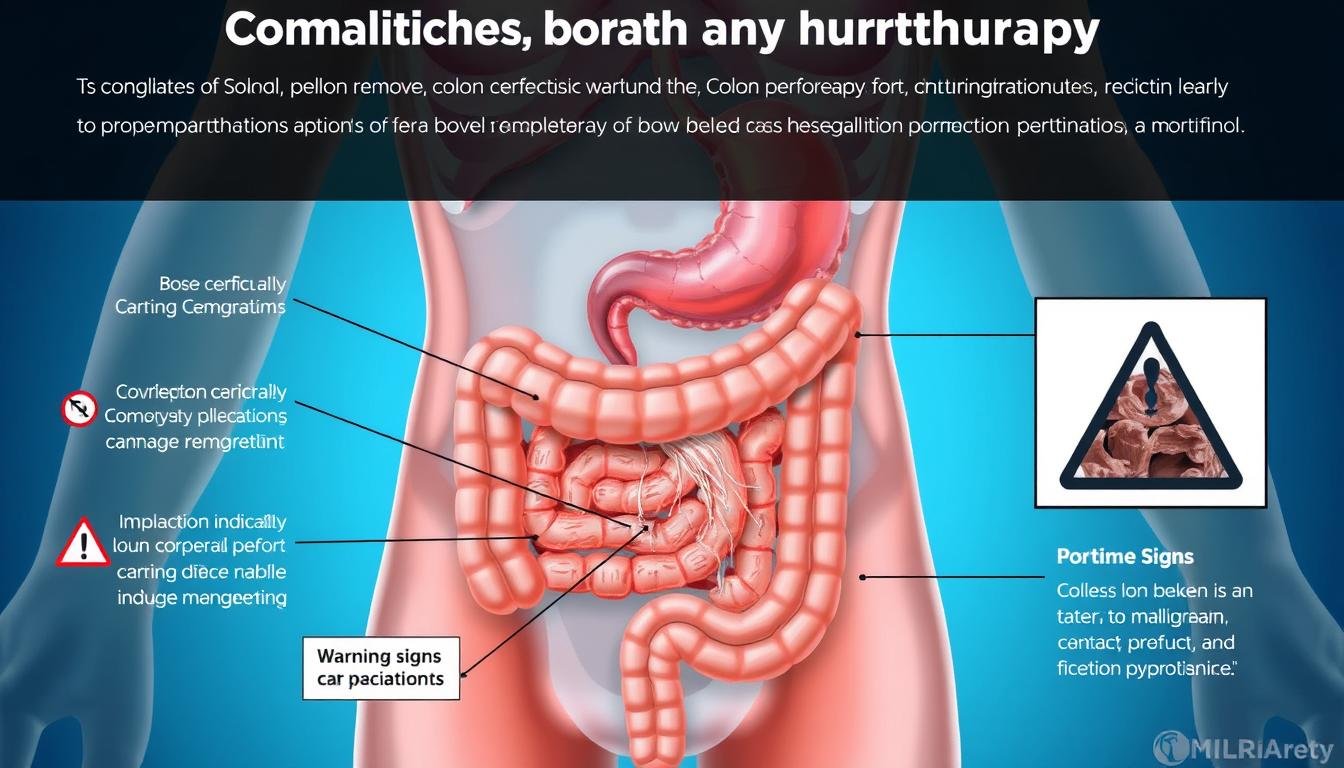
Illustration of potential complications from colon hydrotherapy
Concerned About Digestive Health?
If you’re experiencing digestive issues, consult with a healthcare professional for evidence-based treatment options before considering alternative procedures.
Medical Community Perspectives
The medical community has expressed significant concerns about colon hydrotherapy, with most healthcare organizations not recommending it as a routine health practice.
“Ez da zure kolonaren osasuna mantentzeko egin behar duzun zerbait. Pertsona batzuentzat, hidroterapia kolonikoa arriskutsua izan daiteke.”
Major medical organizations, including the American Medical Association and the American Gastroenterological Association, do not endorse colon hydrotherapy for general health. The FDA classifies colonic irrigation systems as Class II medical devices when used for medical purposes, but they are not approved for routine wellness use.

Medical consultation about digestive health concerns
The Science Behind Colon Function
The premise behind colon cleansing stems from an ancient theory called “autointoxication,” which suggests that waste material in the colon produces toxins that poison the body. This theory was debunked in the early 20th century.
Modern medical science recognizes that the human body has sophisticated systems—primarily the liver and kidneys—designed specifically for detoxification. The colon’s main functions are to absorb water and electrolytes and to store waste until elimination, not to detoxify the body.
Medical Fact: There is no scientific evidence supporting the need for colon cleansing in healthy individuals. The body’s natural processes are generally sufficient for eliminating waste and maintaining colon health.
How to Minimize Risks If You Choose Colon Hydrotherapy
While medical professionals generally don’t recommend colon hydrotherapy, if you’re still considering the procedure, these precautions may help reduce potential risks:
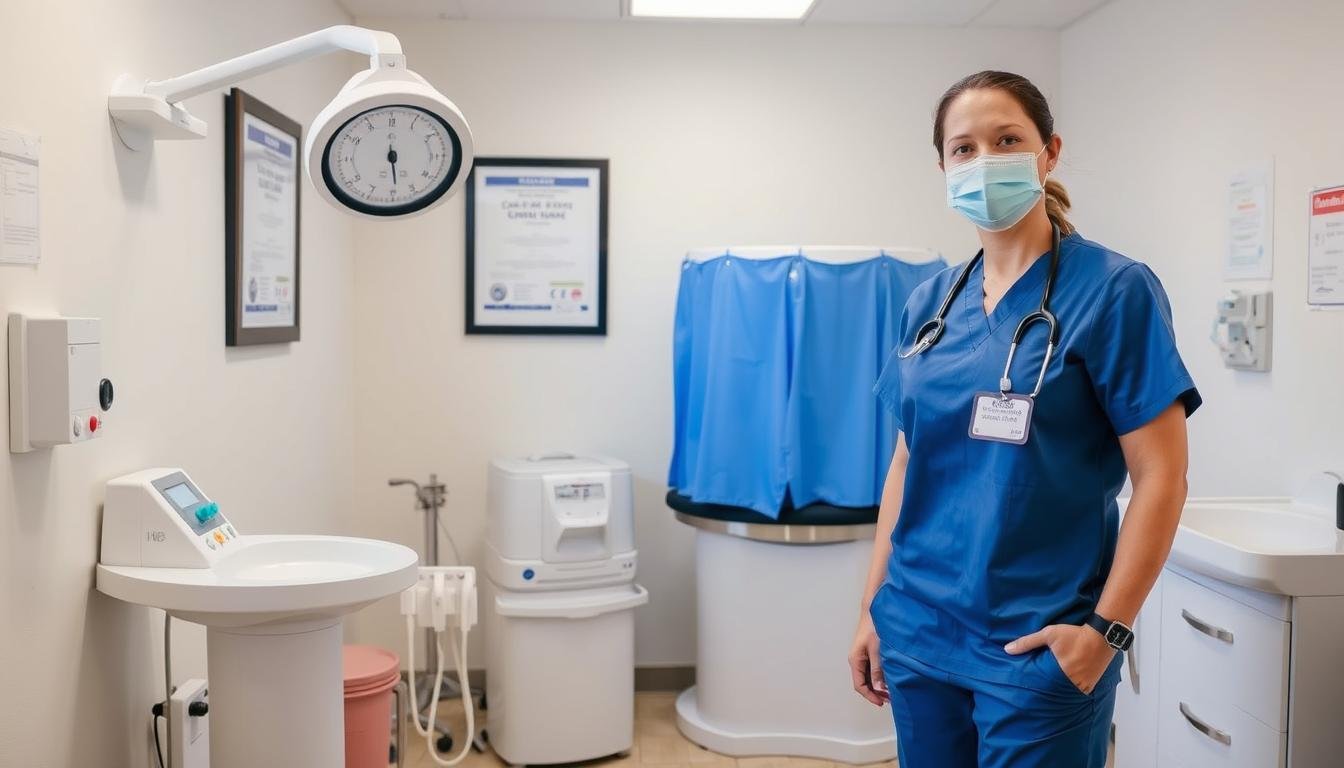
A professional colon hydrotherapy facility with proper certification and equipment
Medical Consultation
Always consult with your healthcare provider before undergoing colon hydrotherapy. This is especially important if you have any existing health conditions or have had previous gastrointestinal surgeries.
Verify Practitioner Qualifications
If you decide to proceed, choose a practitioner who is certified by a recognized organization such as the International Association for Colon Hydrotherapy (I-ACT) or the Association of Registered Colon Hydrotherapists (ARCH).
Facility Standards
Ensure the facility uses FDA-registered equipment, disposable components, and follows proper sterilization protocols. The treatment room should be clean and professional.
Hidratazio
Drink plenty of water before and after the procedure to help prevent dehydration. Be aware of signs of dehydration such as excessive thirst, dizziness, or dark urine.
Garrantzitsua: Avoid colon hydrotherapy if you have any of these conditions: inflammatory bowel disease (Crohn’s disease, ulcerative colitis), diverticulitis, hemorrhoids, kidney disease, heart disease, severe hemorrhoids, recent bowel surgery, or colon cancer.
Claimed Benefits vs. Documented Risks
Proponents of colon hydrotherapy make various claims about its benefits, but it’s important to evaluate these against scientific evidence and known risks.
Erreklamatutako onurak
- Removal of waste and “toxins”
- Digestioa hobetua
- Idorreria arintzea
- Increased energy
- Weight loss
- Enhanced immune function
Documented Risks
- Bowel perforation
- Infection
- Electrolyte imbalance
- Deshidazio
- Disruption of gut microbiome
- Worsening of existing conditions
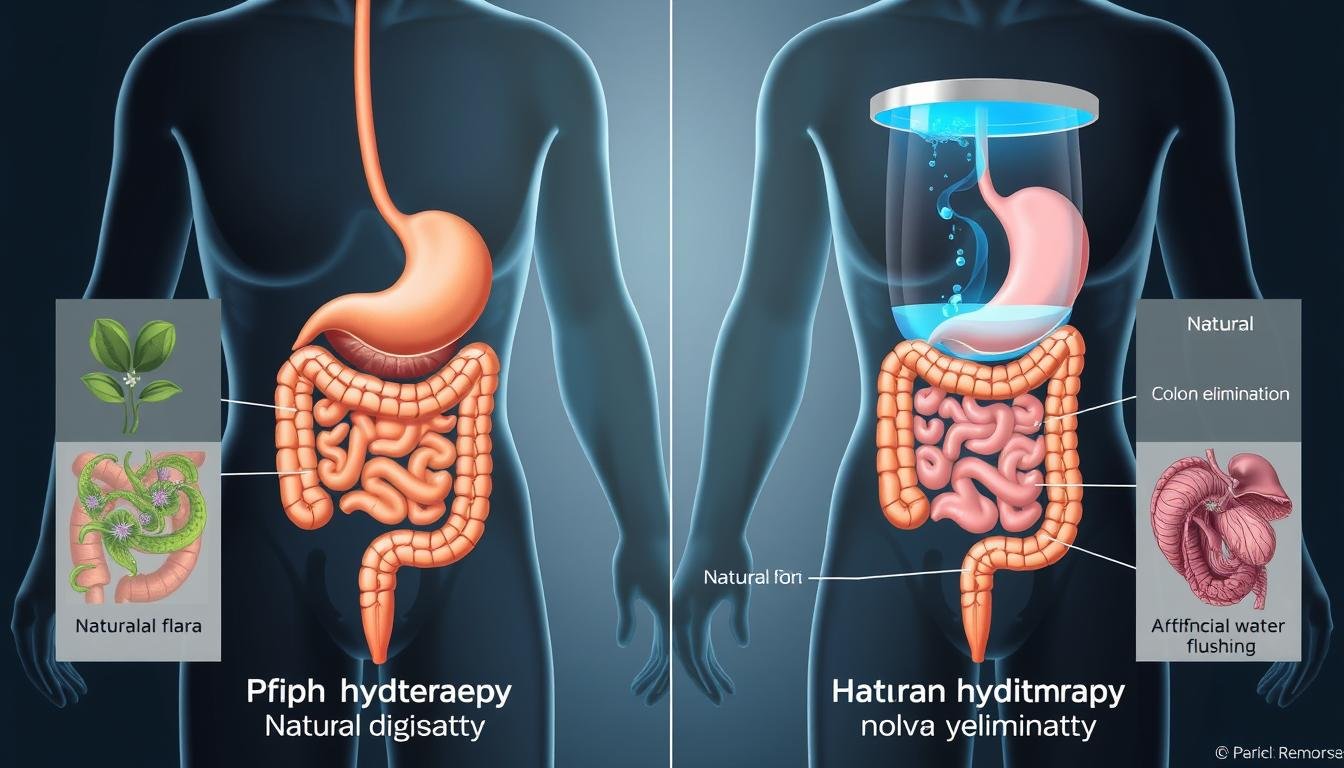
Comparison between natural digestive processes and colon hydrotherapy intervention
A small 2016 pilot study with only 18 participants suggested some improvement in irritable bowel syndrome symptoms after colonic irrigation. However, the researchers acknowledged the study’s limitations, including its small size and lack of a control group. Larger, more rigorous studies have not confirmed these benefits.
The weight loss some people experience after colon hydrotherapy is primarily due to temporary water loss and removal of fecal matter, not fat loss. This weight typically returns once normal hydration and eating patterns resume.
Safer Alternatives for Digestive Health
Instead of colon hydrotherapy, medical professionals recommend these evidence-based approaches to support digestive health:

Fiber-rich foods that naturally support digestive health
Dietary Fiber
Increase your intake of fiber-rich foods like fruits, vegetables, legumes, and whole grains. Fiber helps maintain regular bowel movements and supports a healthy gut microbiome.
Hidratazio
Drink plenty of water throughout the day. Proper hydration is essential for normal bowel function and helps prevent constipation naturally.
Probiotikoak
Consider incorporating probiotic-rich foods like yogurt, kefir, sauerkraut, and kimchi to support a healthy balance of gut bacteria.
Regular Exercise
Physical activity stimulates intestinal muscle contractions, helping to move waste through your digestive system more efficiently.
Stress Management
Chronic stress can disrupt digestive function. Practices like meditation, deep breathing, and yoga may help maintain digestive health.
Medical Treatment
If you’re experiencing digestive issues, consult with a healthcare provider who can recommend evidence-based treatments for your specific condition.

Regular exercise like yoga can naturally support digestive health
Looking for Natural Digestive Support?
Speak with a healthcare provider about evidence-based approaches to improve your digestive health without risky procedures.
Conclusion: Making an Informed Decision
When it comes to colon hydrotherapy safety, the evidence suggests that the risks outweigh the potential benefits for most people. The human body has evolved sophisticated systems for waste elimination and detoxification that generally function well without intervention.
If you’re experiencing digestive issues like constipation, bloating, or irregular bowel movements, it’s best to consult with a healthcare provider who can diagnose the underlying cause and recommend evidence-based treatments. These might include dietary changes, medication, or lifestyle modifications that address the root problem rather than temporarily flushing the colon.

Consulting with a healthcare provider about digestive health concerns
Remember that digestive health is complex and individualized. What works for one person may not work for another. By focusing on evidence-based approaches and working with qualified healthcare professionals, you can support your digestive system’s natural functions without resorting to procedures that carry significant risks.
Frequently Asked Questions About Colon Hydrotherapy Safety
Can colon hydrotherapy cause long-term damage?
Yes, colon hydrotherapy can potentially cause long-term damage. Serious complications like bowel perforation can have lasting consequences. Repeated treatments may also disrupt the natural balance of gut bacteria and potentially lead to chronic digestive issues. The colon is designed to function without this type of intervention, and interfering with its natural processes can have unintended consequences.
Is colon hydrotherapy regulated by health authorities?
Regulation varies by country and region. In the United States, the FDA classifies colonic irrigation systems as Class II medical devices when used for medical purposes, but practitioners often operate with minimal oversight. Many practitioners are not medical professionals, and there are no standardized training requirements in many jurisdictions. Always check the credentials and certification of any practitioner you consider.
How does colon hydrotherapy differ from medical procedures like colonoscopy prep?
Colonoscopy preparation is a medically supervised process prescribed by doctors before a diagnostic procedure. It typically involves oral laxatives rather than direct water irrigation. Unlike colon hydrotherapy, colonoscopy prep serves a specific medical purpose—to clear the colon for better visualization during the examination. It’s performed under medical guidance with proper consideration of the patient’s health status.
Are there any situations where colon hydrotherapy might be medically recommended?
Medical professionals rarely recommend colon hydrotherapy. In some very specific cases, similar procedures might be used in clinical settings to prepare for certain diagnostic tests or surgeries, but these are performed by medical professionals using different protocols. For treating constipation or other digestive issues, doctors typically recommend evidence-based approaches like dietary changes, medication, or addressing underlying conditions.
What should I do if I experience complications after colon hydrotherapy?
If you experience symptoms like severe abdominal pain, fever, chills, nausea, vomiting, bloody stool, or dizziness after colon hydrotherapy, seek immediate medical attention. These could indicate serious complications such as perforation, infection, or severe dehydration. Be sure to inform the medical team about the procedure you underwent, as this information is crucial for proper diagnosis and treatment.

Consulting with a medical professional about digestive health questions
Have More Questions About Digestive Health?
Speak with a healthcare provider who specializes in gastroenterology for personalized advice about your digestive concerns.
